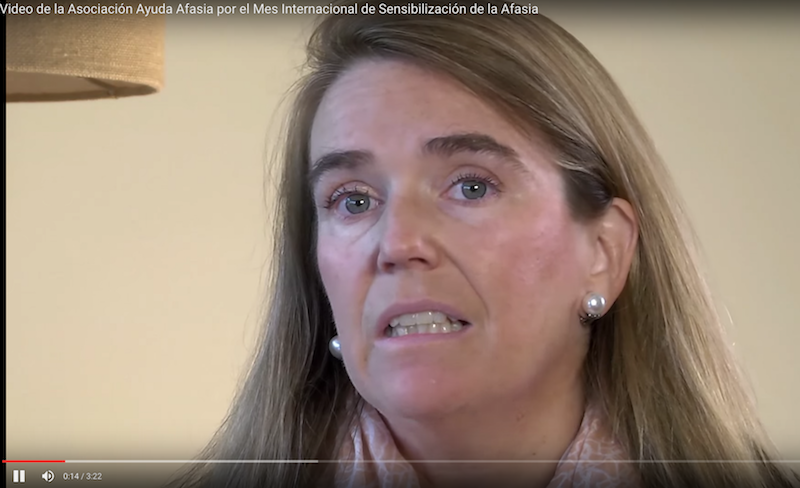English
We have done a video (http://bit.ly/1PPhCXR) In the video Ágata tell us how her life changed after the stroke. She suffer a stroke after giving birth to her second child. She was a normal woman with a normal life, she worked in a notary and she enjoyed doing sport. After the stroke, her life changed, she need a roll chair and start learning skills like talking, writing, Reading, walking…..The stroke attack the left hemisphere of her brain, the one that controls the language, and Ágata should start learning to talk, because she lose her language. … Today, she has a chronic aphasia, but thanks to a good therapy she can communicate, she has a very functional language that allowed her to be independent. She use only nouns and infinitive verbs, she has a happy life but she wants to talk better. In the video she ask people with aphasia to work hard, to try to live with joy. This testimony full of enthusiasm and vitality is the message the Asociación Ayuda Afasia wants to transmit to the society and to the people with aphasia: do not ever give up!
Spain
Elaboración de un video testimonial de sensibilización (http://bit.ly/1PPhCXR) en el que Ágata nos cuenta cómo ha cambiado su vida tras el ictus que sufrió después del parto de su segundo hijo. Era una chica normal, que tenía dos carreras y trabajaba en una notaría a la que le encantaba el deporte. Tras el accidente tuvo que usar silla de ruedas y volver a aprender a hacer cosas básicas como hablar, escribir, leer, andar… El ictus afectó a la parte del cerebro relacionada con el lenguaje y Ágata tuvo que aprender a hablar de cero. A día de hoy, y a pesar de que Ágata tiene afasia crónica, gracias a una terapia del lenguaje, ha aprendido a comunicarse con verbos en infinitivo y sustantivos. Es feliz, pero su afasia es un problema al que tiene que enfrentarse cada día. Ella anima en el video a que otras personas con afasia luchen cada día para superarse y disfruten de la vida. Un testimonio lleno de entusiasmo y vitalidad con el que la Asociación AYUDA AFASIA pretende lanzar un mensaje positivo a la sociedad y a las personas con esta patología: que no se rindan.

